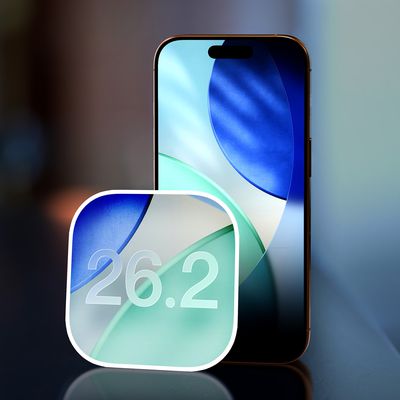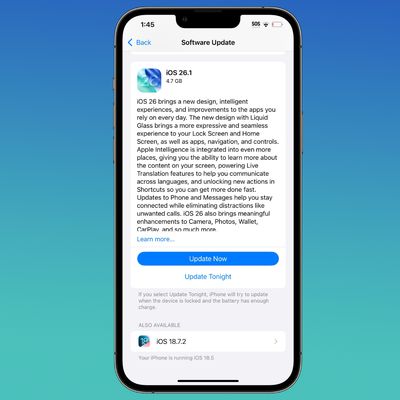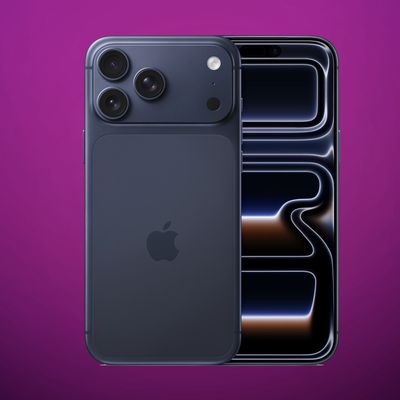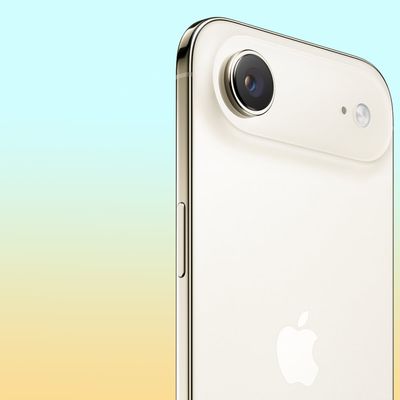Apple Reportedly Working on 3D Sensor System for Rear Camera in 2019 iPhones
Apple is developing 3D depth sensing technology for the rear-facing cameras in its 2019 iPhones, according to a new report by Bloomberg on Tuesday. The 3D sensor system will be different to the one found in the iPhone X's front-facing camera, and is said to be the next big step in turning the smartphone into a leading augmented reality device.
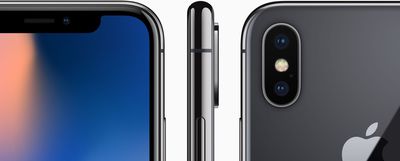
Apple is evaluating a different technology from the one it currently uses in the TrueDepth sensor system on the front of the iPhone X, the people said. The existing system relies on a structured-light technique that projects a pattern of 30,000 laser dots onto a user's face and measures the distortion to generate an accurate 3D image for authentication. The planned rear-facing sensor would instead use a time-of-flight approach that calculates the time it takes for a laser to bounce off surrounding objects to create a three-dimensional picture of the environment.
The existing TrueDepth camera would continue to be used in the front-facing camera of future iPhones in order to power Face ID, while the new system would bring the more advanced "time-of-flight" 3D sensing capability to the rear camera, according to the sources cited. Discussions with manufacturers are reportedly already underway, and include Infineon, Sony, STMicroelectronics, and Panasonic. Testing is said to be still in the early stages, and could end up not being used in the phones at all.
With the release of iOS 11, Apple introduced the ARKit software framework that allows iPhone developers to build augmented reality experiences into their apps. The addition of a rear-facing 3D sensor could theoretically increase the ability for virtual objects to interact with environments and enhance the illusion of solidity.
Apple was reportedly beset with production problems when making the sensor in the iPhone X's front-facing camera, because the components used in the sensor array have to be assembled with a very high degree of accuracy. According to Bloomberg, while the time-of-flight technology uses a more advanced image sensor than the existing one in the iPhone X, it does not require the same level of precision during assembly. That fact alone could make a rear-facing 3D sensor easier to produce at high volume.
Late last month, oft-reliable KGI Securities analyst Ming-Chi Kuo claimed that Apple is unlikely to expand its front-facing 3D sensing system to the rear-facing camera module on iPhones released in 2018. Kuo said the iPhone X's 3D sensing capabilities are already at least one year ahead of Android smartphones, therefore he believes Apple's focus with next year's iPhone models will be ensuring an on-time launch with adequate supply.
Popular Stories
We're getting closer to the launch of the final major iOS update of the year, with Apple set to release iOS 26.2 in December. We've had three betas so far and are expecting a fourth beta or a release candidate this week, so a launch could follow as soon as next week.
Past Launch Dates
Apple's past iOS x.2 updates from the last few years have all happened right around the middle of the...
Apple is encouraging iPhone users who are still running iOS 18 to upgrade to iOS 26 by making the iOS 26 software upgrade option more prominent.
Since iOS 26 launched in September, it has been displayed as an optional upgrade at the bottom of the Software Update interface in the Settings app. iOS 18 has been the default operating system option, and users running iOS 18 have seen iOS 18...
Apple is expected to launch a new foldable iPhone next year, based on multiple rumors and credible sources. The long-awaited device has been rumored for years now, but signs increasingly suggest that 2026 could indeed be the year that Apple releases its first foldable device.
Subscribe to the MacRumors YouTube channel for more videos.
Below, we've collated an updated set of key details that ...
Apple's iPhone 17 lineup is selling well enough that Apple is on track to ship more than 247.4 million total iPhones in 2025, according to a new report from IDC.
Total 2025 shipments are forecast to grow 6.1 percent year over year due to iPhone 17 demand and increased sales in China, a major market for Apple.
Overall worldwide smartphone shipments across Android and iOS are forecast to...
Apple today seeded the release candidate versions of upcoming iOS 26.2 and iPadOS 26.2 updates to developers and public beta testers, with the software coming two weeks after Apple seeded the third betas. The release candidates represent the final versions of iOS 26.2 and iPadOS 26.2 that will be provided to the public if no further bugs are found during this final week of testing....
2026 could be a bumper year for Apple's Mac lineup, with the company expected to announce as many as four separate MacBook launches. Rumors suggest Apple will court both ends of the consumer spectrum, with more affordable options for students and feature-rich premium lines for users that seek the highest specifications from a laptop.
Below is a breakdown of what we're expecting over the next ...
In a statement shared with Bloomberg on Wednesday, Apple confirmed that its software design chief Alan Dye will be leaving. Apple said Dye will be succeeded by Stephen Lemay, who has been a software designer at the company since 1999.
Meta CEO Mark Zuckerberg announced that Dye will lead a new creative studio within the company's AR/VR division Reality Labs.
On his blog Daring Fireball,...
The iPhone Air has recorded the steepest early resale value drop of any iPhone model in years, with new data showing that several configurations have lost almost 50% of their value within ten weeks of launch.
According to a ten-week analysis published by SellCell, Apple's latest lineup is showing a pronounced split in resale performance between the iPhone 17 models and the iPhone Air....
iPhone 17 Pro models, it turns out, can't take photos in Night mode when Portrait mode is selected in the Camera app – a capability that's been available on Apple's Pro devices since the iPhone 12 Pro in 2020.
If you're an iPhone 17 Pro or iPhone 17 Pro Max owner, try it for yourself: Open the Camera app with Photo selected in the carousel, then cover the rear lenses with your hand to...
OpenAI is deprioritizing work on advertising as it focuses on improving the quality of ChatGPT, reports The Information. OpenAI CEO Sam Altman declared a "code red" on Monday, and told employees that the company needs to improve ChatGPT so it doesn't fall behind competitors like Google and Anthropic.
Altman said that OpenAI needs to work on personalization for each user, image generation,...



